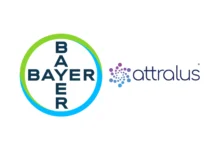Conducting a clinical trial today requires coordinated procedures, standardized documentation, and a clear understanding of the regulatory systems that govern research. As more studies extend across borders, the need for organizations with regional expertise becomes increasingly important. A European CRO plays a central role in supporting clinical research within the diverse regulatory environment of Europe, ensuring that each study aligns with both local requirements and international standards.
Regional Expertise in the European Research Landscape
Europe is characterized by a multi-layered framework of regulations, including the EU Clinical Trials Regulation (CTR), national ethics procedures, GDPR requirements, and country-specific operational expectations. A European CRO is familiar with these layers, enabling smoother coordination across member states and associated countries.
Typical contributions include:
- understanding national timelines for ethics and authority submissions,
- coordinating site contracts within different legal systems,
- supporting multilingual document preparation,
- aligning study processes with GDPR-compliant data protection measures,
- identifying investigators with strong track records in specific therapeutic areas.
This regional knowledge reduces delays and supports consistent implementation of clinical procedures across multiple locations.
Cross-Border Study Management
Many clinical studies today involve several European countries, especially when rare diseases or limited patient pools require broader recruitment. A European CRO provides the operational structure that allows such studies to function cohesively.
Responsibilities often cover:
- unified monitoring strategies,
- cross-site communication and issue escalation,
- harmonized training for investigators,
- oversight of protocol adherence,
- preparation of documentation suitable for audits and inspections.
These coordinated processes help ensure that data collected from different countries remain comparable and reliable.
Quality Assurance and Compliance
Quality management is an essential component of clinical research. European CROs implement systems aligned with ICH-GCP, ISO-based frameworks, and EMA expectations. This includes routine audits, corrective action planning, and continuous staff training.
The goal is to maintain study integrity, minimize procedural deviations, and uphold ethical standards throughout the research lifecycle.
Integrating Digital Tools and Modern Methodologies
Clinical trials in Europe increasingly rely on digital solutions such as electronic data capture, remote monitoring, and electronic consent. A European CRO helps integrate these tools into study workflows while ensuring they comply with regional legislation on data protection and patient privacy.
Additionally, multicenter trials may involve decentralized or hybrid elements. CROs assist in:
- evaluating feasibility for remote processes,
- coordinating device distribution and data transmission,
- ensuring that digital methods are properly validated and documented.
Supporting a Wide Range of Therapeutic Areas
European CROs work across numerous therapeutic fields, from oncology and cardiology to medical device research and rare diseases. Different specialties require tailored approaches – such as specific imaging criteria in oncology or technical assessments for medical devices – and regional CROs bring experience that reflects the diversity of the European research ecosystem.
A European CRO provides not just operational support but a comprehensive understanding of regulatory systems, data protection rules, and cultural and linguistic factors that influence clinical research in Europe. By combining regional expertise with established quality frameworks, CROs help sponsors run studies that are compliant, efficient, and scientifically sound.




















